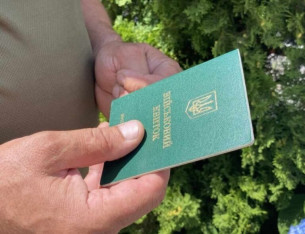lawyer, 23 years of experience in enforcement.
One of the measures of enforcement of decisions is the seizure of funds and other property of the debtor.
Foreclosure on the debtor's property consists in its seizure, seizure (removal of funds from accounts) and forced sale. There is also a sequence of foreclosure on the property and funds of the debtor, namely:
First of all: collection of enforcement documents applies to the debtor's funds in national and foreign currencies, other valuables, including funds in the debtor's accounts in banks and other financial institutions. At the same time, the Law of Ukraine "On Enforcement Proceedings" establishes a list of prohibited types of obtaining funds, foreclosure and seizure.
The procedure for applying for the debtor's funds:
Cash funds found in the debtor's possession are withdrawn and credited to the relevant accounts of the state executive service bodies, the private executor no later than the next working day after the withdrawal, on which an act is drawn up.
Non-cash funds and other valuables of the debtor, which are in accounts and in storage in banks or other financial institutions, in securities accounts in depository institutions, are subject to seizure no later than the next working day after their discovery. Seizure also applies to funds in accounts opened after the decision to impose sequestration.
The law provides that in the event that after the executor imposes a seizure on the funds of the debtor - a legal entity in banks or other financial institutions, the debtor deliberately does not comply with the court decision and opens new accounts in banks or other financial institutions, if there are signs of a criminal offense, the executor has the right to send a notification to the pre-trial investigation bodies, p
on bringing to criminal responsibility Art. 382 of the Criminal Code of Ukraine ("Non-execution of a court decision"). Liability under the specified article can be based on a fine of five hundred (8,500 hryvnias) to one thousand (17,000) non-taxable minimum incomes of citizens, as well as imprisonment for a term of up to three years.
Secondly, if the debtor does not have funds and other valuables sufficient to satisfy the demands of the debt collector, enforcement is immediately applied to other property belonging to the debtor, except for property that cannot be levied according to the law. The foreclosure of the debtor's property does not stop the foreclosure of the debtor's funds. The debtor has the right to propose types of property or objects that must be sold first. The sequence of recovery of funds and other property of the debtor is finally determined by the executor.
Please note that the measures applied by the executor to the debtor must be commensurate with the amount of the debt. That is why the law establishes an important rule regarding foreclosure on the debtor's single home. It consists in the fact that when the debt is less than the total amount of 20 minimum salaries (as of April 1, 2024 - UAH 160,000), then it is prohibited to deprive the debtor of a single home.
Foreclosure on the debtor's property is applied in the amount and volume necessary for the execution of the executive document, taking into account the collection of the enforcement fee, costs of the enforcement proceedings, fines imposed on the debtor during the enforcement proceedings, the main remuneration of the private executor. If the debtor owns the property together with other persons, the recovery is applied to his share, which is determined by the court at the request of the executor
The executor conducts an inspection of the debtor's property status within 10 days from the day of the opening of the enforcement proceedings. In the future, such an inspection is carried out by the executor at least once every two weeks - for the identification of the debtor's accounts, at least once every three months - for the identification of immovable and movable property, objects of unfinished construction, future real estate objects of the debtor and his property rights , obtaining information about the debtor's income
will provide
A debt collection lawyer, debt lawyer will help at each stage of the execution of a court decision and provide debt collection services. Analysis of legal requirements, preparation of documents and their submission - all of these are the main tasks that a debt collection lawyer will implement. as well as assistance in debt repayment. Legal services for debt collection will help you save money and time to achieve the desired result as soon as possible.assistance in solving problems with loans
































